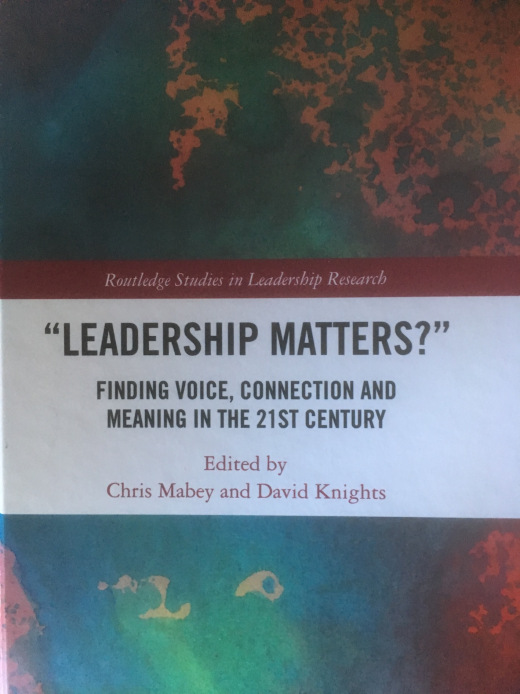Leadership Matters: the mindful-promise
Jan 29, 2020

- We use 1.5 planets worth of resources to fuel growth and consumption
- The worlds eight wealthiest people own the same as the poorest 3.6 billion
- The financial sector is driven by profit creating unstable phantom wealth
- Excessive corporate power is exercised through political lobbying
- Rates of personal stress and depression are increasingly globally.
With this punchy summary of the world today, Sally and Jean-Paul Jeanrenaud introduce chapter 2 of Leadership Matters, going on to question the effectiveness of sustainable development which focuses only on the problems out there, and inviting us to consider the notion that Mindfulness has the power to change the world one person at a time from the inside out.
Forty years go, I was deeply inspired by a book written by Dr William Bright, called Come help change the world, which would have resonated closely with this notion, except that Bill would have replaced the word mindfulness with something like the good news about Jesus. Twenty or so years later I recall Bill speaking with some anguish about how individual Americans embracing that good news had not had the anticipated redemptive effect on American society.
Aware that if I have any readers at all, most will be Christians, I want to ask you to you to consider carefully what Sally and Jean-Paul, who are Buddhists, have to say. Traditionally evangelical Christians have probably responded to Buddhists with judgmental suspicion rather than critical attentiveness. So lets have a go at the latter.
Inner change, they suggest, involves aligning our innate faculties to higher universal ideals of truth, beauty and goodness. They go on to quote Kabat Zinns definition of mindfulness, namely paying attention, on purpose, in the present moment, non-judgmentally. I wonder if you agree happily with all this until you hit the word non-judgmentally. In the previous paragraph I asked you to consider with critical attentiveness, yet implicit in this definition is an invitation to suspend your rational critical faculties.
Lets return to Dr Brights anguish. Why when there are so many Christians in America, is the country in such disarray? What happened to the spiritual trickle up effect? There is a great irony in that while mindfulness has been growing popular in the West, the evangelical practice of the Quiet Time has been in decline. I suspect that for many it became an exercise in language comprehension, processing biblical thoughts using rational techniques. While this has value, it does not fulfil the biblical injunction to Be still, and know that I am God, nor is it as interesting, engaging or powerful as paying attention, on purpose, in the present moment. Whats more, good listening must begin with an intense desire to understand, and only when we have gained a good understanding should we introduce the notion of judgment, aimed primarily at integrating new insight more than the conservative preoccupation of defending against it.
I had the privilege of critiquing some of the earliest drafts of Leadership Matters, and made the point that mindfulness is not only a Buddhist concept, appropriately revised in the final text. We can learn much about what Brian Draper prefers to call soulfulness from the Christian monastic movements, and the Jeanrenauds also furnish us with common sense advice drawn from the experience of their ten research participants across five continents, and backed up by the relatively new and exciting disciplines of neuroscience and epigenetics.
Despite the authors emphasis on the inner person, they point out that lasting change requires both inner personal transformation and outward systemic change, another reason, I suggest, for Dr Brights anguish, for American evangelicalism in the last century tended to focus on the former. That is starting to change in some quarters, but the chief challenge of this chapter remains. How do we integrate mindfulness into our lives, including our professional lives? And where can we find the wisdom, the courage and the resources to introduce it into whole organisations?